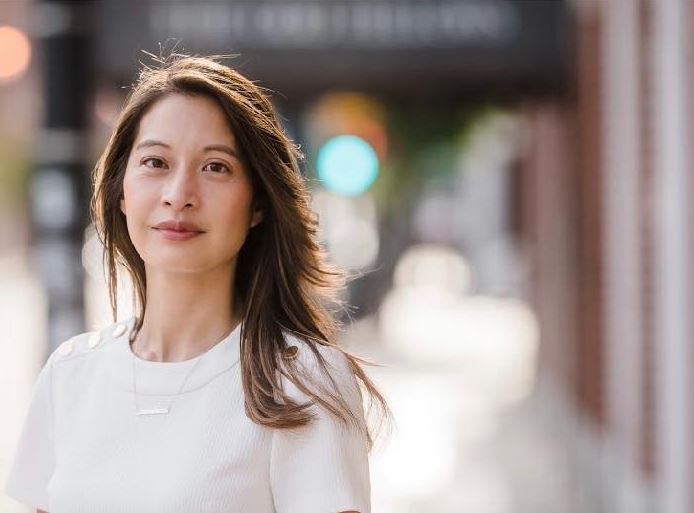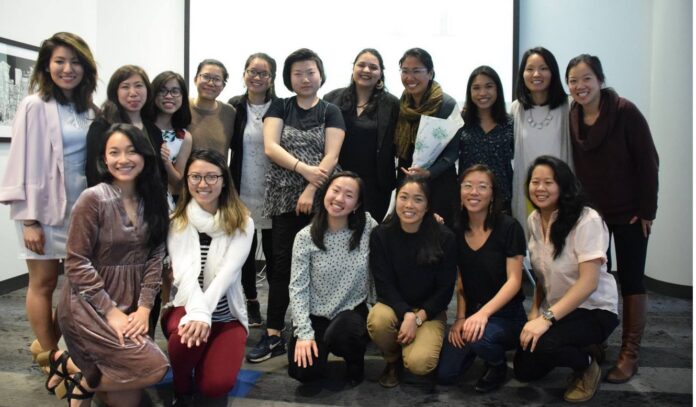By Louis Chan, AsAmNews National Correspondent
The Boston-based Asian American Women’s Political Initiative wants to ensure that Boston Mayor Michelle Wu isn’t a one-off.
Wu made history two weeks ago as the first Asian American woman elected mayor on the East Coast.
AAWPI’s goal is to fill the pipeline with Asian American women to follow in her footsteps.
“Just for all the Asian American girls, and Asian American women across the country, to see Michelle become mayor, and to see ourselves reflected in her, it’s everything,” Diana Hwang, founder and Executive Director of AAWPI said to AsAmNews during a Zoom interview.
After 12 years focused on Massachusetts, her organization recently announced it is now expanding into Georgia with the goal of activating 30,000 APIs and API women in both states within two years. Georgia will be followed by North Carolina, Texas, and California in subsequent years.
That goal came closer to reality this month when Gold House and Asian American Futures announced that following a public vote, AAWPI had won its inaugural Gold Futures Challenge and will be awarded a $100,000 grant.
“As the country’s only political leadership organization for Asian American women, AAWPI is creating a first-of-its-kind national infrastructure to activate AAPI women in civic engagement and social change,” Jeremy Tran, executive director of Gold House, said in a statement sent to AsAmNews.
“We’ve seen great progress recently at the national and local levels — with the elections of Vice President Kamala Harris and Boston Mayor-Elect Michelle Wu — but we must continue to combat the harsh realities that AAPI women continue to be underrepresented, underserved, and disproportionately targeted by violence,” Tran continued.
Hwang says currently, 7 out of 10 Asian Americans elected to public office are men. She points out only 0.7% of state legislators nationwide are Asian American women. They would have to be elected at five times that rate to gain parity.
Her plan is to start her cohorts young. She’s focused on women in college and those between the ages of 22 -29.
“What’s critical is that API women must meet this moment, this moment where we’re having a massive political awakening in our community, amidst all of the things our communities are facing, anti-Asian hate to a mass shooting (Atlanta), and the multiracial fight for racial justice,” Hwang said.
RELATED: Michelle Wu sworn in as mayor of Boston
She also understands that gaining support for these goals even within the API community can be challenging. Hwang says first people must be convinced that Asians aren’t all lawyers, doctors, and engineers. Then she has to persuade people to focus on women and to buy into investing in civic engagement and political power.
AAWPI’s advisory council includes U.S. Senator Mazie Hirano (D-HI), Rep Pramila Jayapal (D-WA), Rep Ayanna Presley (D-MA), California State Controller Betty Yee (D-CA), Georgia State Senator Michelle Au (D-GA), Michigan State Senator Stephanie Chang (D-MI), and Georgia State Rep Bee Nguyen (D-GA).

Nguyen became the first Vietnamese American to the Georgia House of Representatives, replacing Stacey Abrams, in 2017. Nguyen announced her candidacy for Georgia Secretary of State in May.
Hwang says even getting women to run for political office is a challenge. Studies show they have to be asked multiple times to get them to agree. It can even be difficult to get them to apply for an internship because they feel unqualified.
AAWPI is piloting an incubator program to fund civic impact projects designed and led by API women in Massachusetts and Georgia. Each program will receive up to $10,000 and will be surrounded by political leadership training from the beginning to the end.
“We give them training about, you know, how to how to engage and mobilize voters all the way up to how to run,” Hwang said. “We give them coaching, we give them grassroots partnerships, and, and mentors, and they come in as a cohort.”

Hwang speaks from experience. She ran in the primary for the Massachusetts State Senate in 2016 winning 13% of the vote in an eight-person field.
She now wants to mobilize an army to help other API women to win political office.
“So part of it is is that you harness the energy that you created. Learn how to mobilize and activate your community. So the early end of the pipeline helps elect at the later end of the pipeline.”
AsAmNews has Asian America in its heart. We’re an all-volunteer effort of dedicated staff and interns. Check out our new Instagram account. Go to our Twitter feed and Facebook page for more content. Please consider interning, joining our staff, or submitting a story, or making a contribution.


